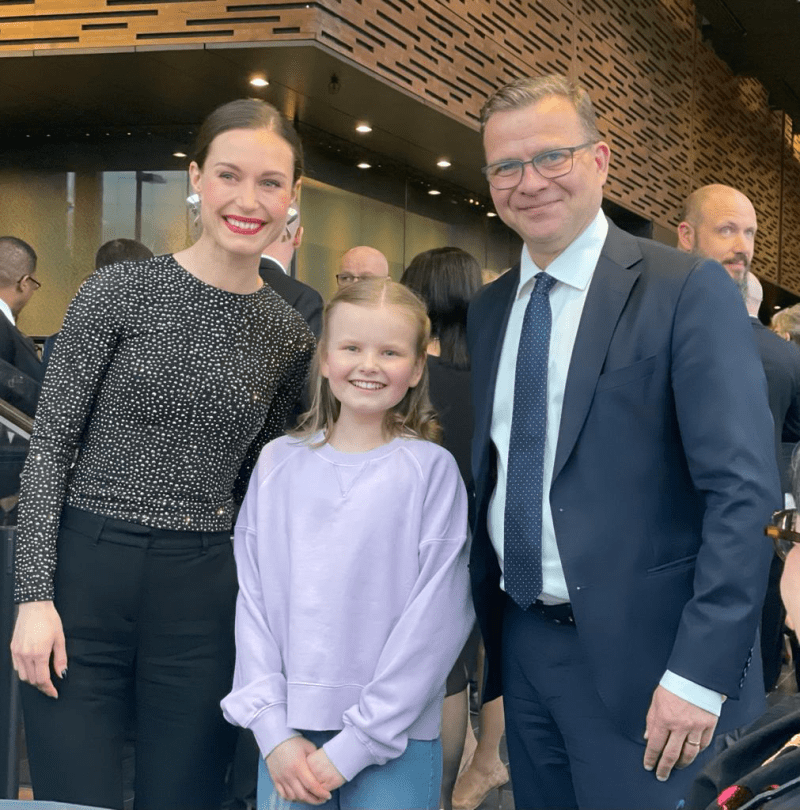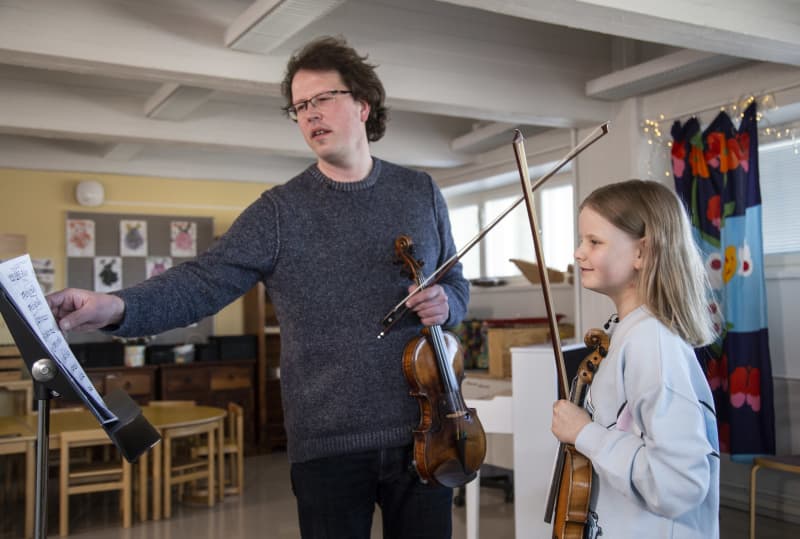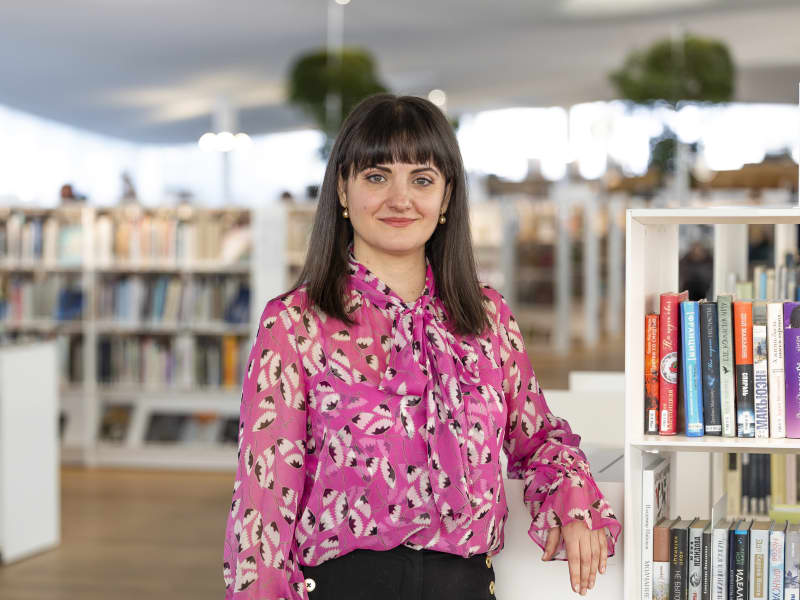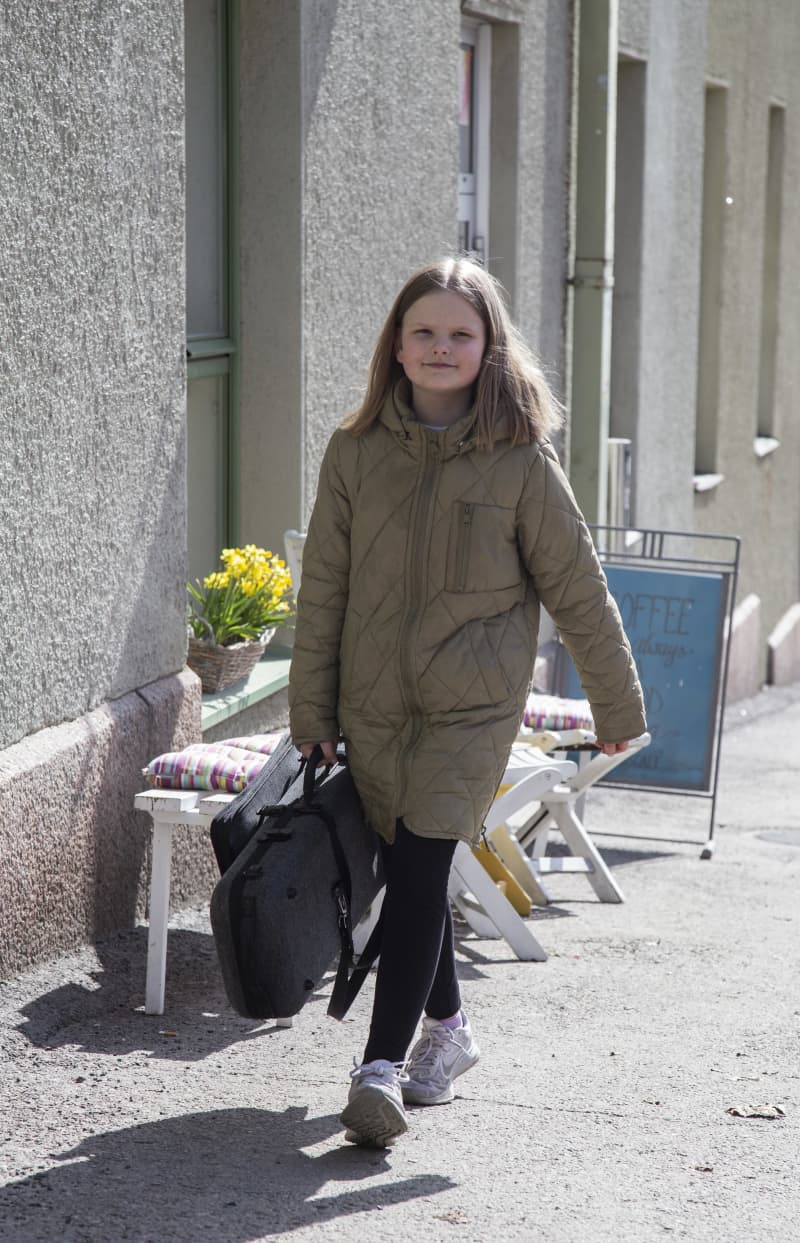Over the years, Finland has been described as a wonderland of music education, even in the international press. Many fear that such talk will soon be forgotten.
The most amazing thing is his reactivity on stage.
Haatainen is a true top violinist, a sovereign interpreter of music, who won the international violin competition for under-14s in Germany last autumn.
– It was incredible. I never imagined I would be calling politicians. I was speechless, I couldn’t even think. It was amazing,” she says.

“The feeling is that less would be as good”
Haatainen’s performance for the decision-makers can be seen as a subtle statement from the Radio Symphony Orchestra. There is something metaphorical about the meeting of a promising violinist and top politicians, because there is great concern about the state and future of music education.
– We feel that with less we would get an equally good result or even better. It seems that especially the specially talented have been forgotten, Malmivaara updates.

– Finland is a country that has placed music at the center of its identity, and rose to international fame precisely because of its music, Saariaho reminds in his speech.
“It is of the utmost importance to support the innately talented”
An extensive research project is underway in Finland on questions related to the education of musically gifted children. The goal of the five-year project is, among other things, to find out by what means special gifted children could be supported during their education in a better and more ethically sustainable way.
However, the starting point is clear. The value of music and other art subjects is immeasurable for all children, and the gifted need extra support.

Despite its small population, a huge number of professionals have risen to the top of classical music in Finland over the decades. According to López-Íñiguez, the reasons for the success are the unique music education network and the quality of education and research.
– We constantly question our practices so that they serve students better.
López-Íñiguez has followed cultural policy in Finland with confusion.
– After the war, Finland had enough resources to build a music education network and now suddenly we can’t afford to maintain it? Culture is not a luxury. It is a basic human need.
Additional training is needed for those who are goal-oriented
When Kyrki retired, Haatainen’s whole family moved to Porvoo because of Lilja’s violin playing and a new teacher who was deemed suitable for her.
– I wouldn’t be at this stage without my family’s support. My mother accompanies me on my violin trips and violin lessons, says Haatainen.

– It has great value. There are violinists who want more demanding lessons and more training, says Haatainen.
Malmivaara and Vähälä themselves once attended Kuhmo’s violin school and wanted to offer something similar to today’s youth.
– Especially today, when the resources are not sufficient, something more needs to be added to it, Malmivaara states.
At the same time, you have to keep your hat on. Haatainen says that he trains on average three hours a day. Malmivaara says that by all means, but preferably no more.
– The most important thing for young players is that they practice regularly.
Success takes its toll
Those who reach the top of music are socially valuable, for example in the name of internationalization and the building of national identity – and still are.
However, extraordinary success does not come for free.
After Haatainen had called the politicians on Thursday, he went home to Porvoo during the break to sleep and prepare for the upcoming school day, but…
– Then I couldn’t go to school on Friday. There had been two concerts, quite a tough and long evening. I decided that maybe I’ll stay home after all.
*What thoughts did the story evoke? You can discuss the topic on 18.4. until 11 p.m.*
